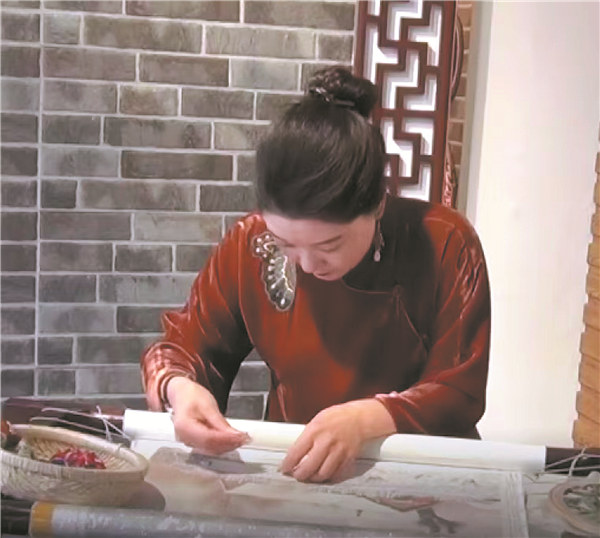

In Mandarin, the character qi also refers to a flag, symbolizing victory, courage and good luck.
To adapt to young people who make specific requests to showcase their individuality, the designers at Qipao Hall have started incorporating modern elements and fashion design. "In some situations where cheongsams may not be suitable, we have developed cheongsam-related products such as bags and outerwear with buttons and trims," Zhu said.
The hall now has over 50 employees and an annual output value of 16 million yuan. More than 30 percent of orders come from abroad.
"Most of the foreign orders came from Chinese who wanted to show the traditional Chinese culture in foreign countries, such as Australia, Canada, Japan, the USA and the UK," she said. "Some mothers told me they were quite proud of wearing a cheongsam to attend their children's graduation ceremony, and some even customized cheongsams for their daughters."
In 2019, Zhu opened a Qipao Hall in Shenzhen, Guangdong province, attracting more customers from the province, Hong Kong, Macao and Singapore.
"Young people and Chinese abroad are more interested in traditional Chinese culture," said Pi Fusheng, a researcher of literature and history with the city's Committee of the Chinese People's Political Consultative Conference. "Cheongsams make them feel the charm of traditional culture and enhances cultural identity and pride."
"On the basis of maintaining the uniqueness and cultural value of intangible cultural heritage, inheritors and practitioners should be encouraged to innovate," he said. "The design of new products and the improvement of the process make the intangible heritage full of new vitality."
Han Junhong contributed to this story.